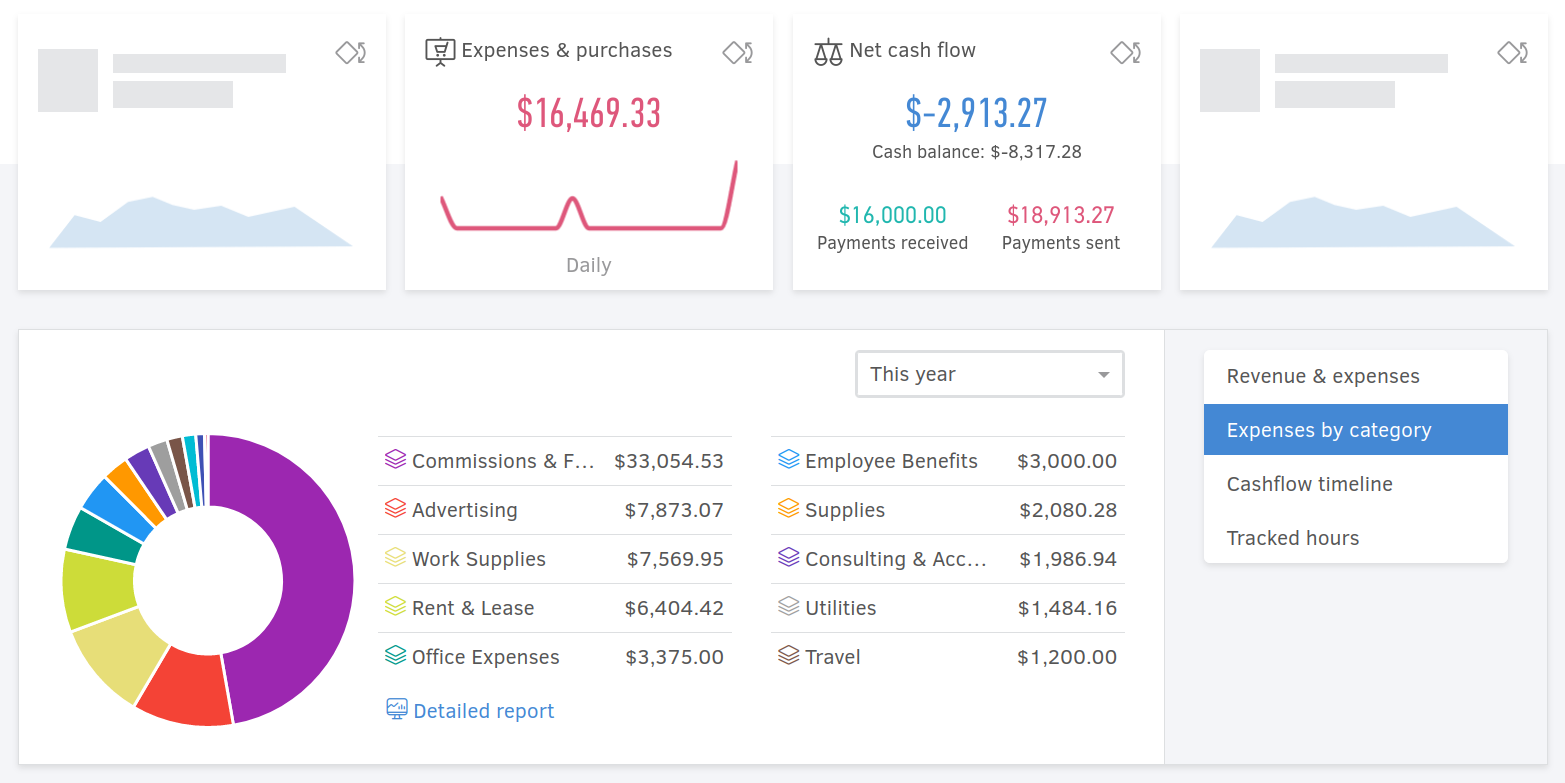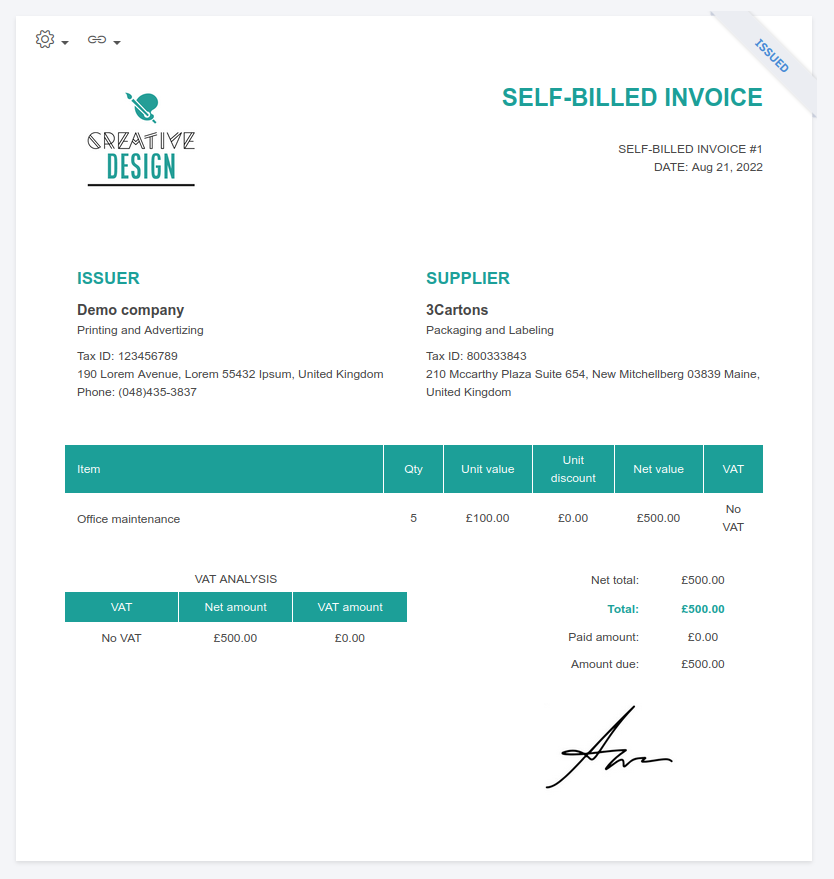Business expenses typically refer to money spent by an organization in an effort to generate revenue. These may include outgoing payments such as travel expenses, rental payments, operational expenses etc., as well as purchases of goods and services from suppliers. Elorus comes with two distinct features to help you monitor all of your business expenses: Expenses and Bills.
About Bills
Whenever you make a purchase, the supplier will typically send you a bill (e.g. issue an invoice) that represents an obligation to pay for goods delivered or services rendered. In Elorus, such documents are referred simply as Bills.
Working with Bills is similar to managing your Sales invoices. You may record a purchase invoice as well as the associated supplier payments. You can monitor the Bill payment status and set automated reminders to get notified for possible outstanding amounts.
Of course you may use the Bills functionality to track down expenses other than purchase invoices, such as travel expenses or office supplies. However, such expenses are typically paid upon receipt and managing payments manually will most likely add an unnecessary overhead. To manage business expenses via a simple and fast workflow, please see the Expenses feature.
Bills and the Inventory
Bills can be associated with Products / Services to denote a purchase of inventory items. Once stock management has been enabled, Elorus will effectively increase the available stock based on the purchased quantity.
Expense categories
Each time Bills are being recorded into the application, they must be associated with a corresponding Expense category to help you better understand your spending. Upon registering with Elorus, a wide selection of Expense categories has been installed into your Organization. Although this selection will cover most business cases, you may still customize the available Expense categories to suit your needs.

Project expenses
Bills may optionally be associated with Projects to access a clear overview of your project finances. Additionally, you may choose to automatically bill your client with the expense the next time you invoice the Project.
Receipts & other attachments
Attaching the received invoices or any other documents to your Bills is an easy and straight forward process. The attachments will always be available to your team online, and they can also be bulk-exported to a ZIP file, for the purpose of archiving.
Additional tracking categories
Besides Expense categories, Bills may also be tracked by any other property your business needs dictate (e.g. purchases by work group). For more information see the article about Tracking categories.
Self-billed invoices
Self-billing is a commercial arrangement between a supplier and a customer in which the customer (you) prepares the supplier's invoice and forwards a copy to the supplier with the payment.
In Elorus, self-billed invoices comprise a special form of Bills. For the most part they act like regular Bills, but they can also be exported to a PDF, as well as be sent to suppliers via email.


